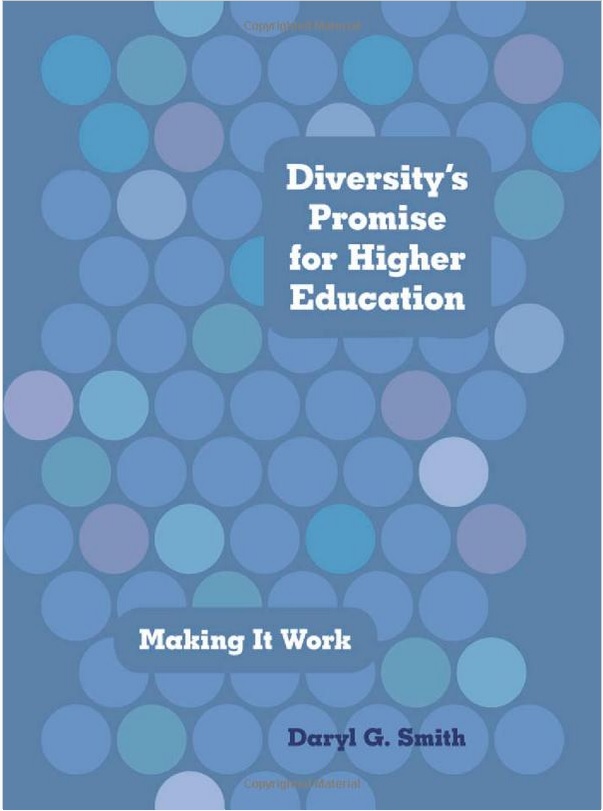Educational Benefits of Diversity
In the last two decades research on educational outcomes has outlined more clearly the benefits of a diverse learning environment in academic achievement: the "robust exchange of ideas" cited by Justice Powell in the 1978 Bakke case.
The 2000 AAUP/ACE report "Does Diversity Make a Difference?" and the documentation produced during the 2002 University of Michigan Supreme Court case have brought this research into sharper focus. Their results continue to be refined in recent studies.
What do we mean by Race, Ethnicity and Diversity?
What is a diverse learning environment?
What are the educational benefits of a diverse learning environment?
The previous ideas have been drawn from the following sources, which provide additional insights into the advantages of a diverse learning environment:
 Daryl Smith, Diversity Works: The Emerging Picture of How Students Benefit.
Daryl Smith, Diversity Works: The Emerging Picture of How Students Benefit.
The seminal work which summarizes and analyzes research on the effects of campus diversity on students from 300 separate studies on diversity in higher education. The evidence documented makes a strong case for the success and importance of diversity initiatives in supporting educational excellence throughout the campus.
 Diversity's Promise for Higher Education: Making It Work, 2009.
Diversity's Promise for Higher Education: Making It Work, 2009.
This book is an update of her earlier work with many resources on the role and implementation of diversity in the university curriculum and institutional assessment for administrators, faculty and staff.
Dr. Smith is one of the top assessment experts in the nation. She is well known for her lectures, workshops and training sessions on diversity in higher education and its outcomes for all students.
Three research studies on diversity in college classrooms done by the American Council on Education and the American Association of University Professors. "The strong empirical evidence presented in this monograph, comprising three studies of college teachers’ and students’ attitudes toward and experiences with racial and ethnic diversity, demonstrate that campus diversity represents an educational benefit for all students—minority and white alike—that cannot be duplicated in a racially and ethnically homogeneous academic setting. The studies presented here strongly support the proposition that practices such as race-sensitive admissions lead to expanded educational possibilities and better educational outcomes for all students, regardless of race or ethnic origin."
